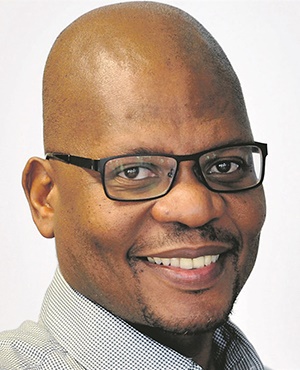
In the 1990s, as free societies were taking root in post-communist eastern Europe, Poland was a poster child for democratic change.
Democracy was flowering; a human rights culture was developing; free speech was flourishing and liberty was becoming the norm. While some of her post-totalitarian neighbours struggled with adjusting to freedom, Poland climbed up the indices that measure progress.
The economy grew, leading to Poland becoming a high-income country – albeit with attendant inequality. Culture thrived as artists wrote and sang of landscapes and life, rather than oppression and protest.
This freedom was well-deserved as Poland had not enjoyed the fruits of the post-World War 2 peace. Instead of enjoying freedom from Nazi occupation, Poland became a vassal state of the Soviet Union. Its leaders danced to Moscow’s tune, much to the detriment of the people.
Today, Poland’s democracy project is under threat from a right-wing governing party, a sign that a society that takes its freedoms for granted can have them taken away at a whim.
It all started going wrong in 2015, when the right-wing Law and Justice Party won the presidential and parliamentary elections. Although it only attained 37% of the vote, it became the largest bloc in Parliament, with the displaced Civic Platform securing just over 24%. Like in other European countries that have swung to the right, Justice and Law’s surge was spurred on by anti-immigrant sentiment. With EU powers encouraging a progressive attitude to immigration, populist parties spread fear and foreboding among European populations. Europe as they knew it was falling to invading hordes from faraway lands who would take their jobs, bring their cultures and religions and bomb the daylights out of them.
The scaremongering worked wonders. Previously unelectable right-leaning parties assumed power, formed part of governing coalitions or increased their influence in opposition benches.
While swings are normal and desirable in a healthy democracy, the rightward shift has had its costs. The biggest is in the erosion of the quality of democracy. Rightists are generally of a fascist bent to varying degrees and the policies they implement reflect this. They poison the society and ferment hatred.
In the 20-something months Law and Justice has been in power, it has launched serious assaults on basic rights and pillars of freedom, changing the character of modern Poland. The country has been falling down the democracy rankings.
Law and Justice’s “re-Polandising” Poland project has entailed cosying up to the Catholic church hierarchy and fulfilling some of its conservative wishes. For instance, there were attempts to ban abortion. Sunday shopping is being gradually phased out, starting with the current two Sundays per month ban, moving to three Sundays per month next year and a total ban in 2020. This is all under the pretext of protecting retail workers’ rights. Those who have seen through it say it is to encourage church-going.
The party is drawing the media and the intellectual community into its nationalist project, and is fermenting a jingoistic view that any criticism of its actions is hostile foreign interference, or is driven by unpatriotic forces inside the country. The state-owned broadcasters and newspapers are now known as “national media” rather than “public media”.
Poland is engaged in a bitter war with the EU, which has strict expectations about the behaviour of its member states.
The latest standoff revolves around Law and Justice’s attempts to control the judiciary. Using the pretext that the judiciary still has remnants of the communist era and is therefore untransformed (which may sound familiar to South Africans), the government and the party’s parliamentary caucus want to strengthen political control over the hiring and firing of judges.
After the initial law was vetoed by the president – who is a more moderate member of the party – Law and Justice tried another tack. It has introduced a bill that would force judges to retire at the age of 65. This sly but transparent trick would speed up the party’s bid to overhaul the judiciary and appoint favourable judges.
This move was described by civil society organisations as an attempt “to create a Soviet-style justice system, where the control of courts, prosecutors and judges lies with the executive and a single party”.
The EU’s Venice Commission, which has oversight over such matters, said the proposed law would “enable the legislative and executive powers to interfere in a severe and extensive manner in the administration of justice”.
Why should anyone sitting on the southern tip of the African continent care about happenings 10 000km away, in a country with which they have few historical and cultural ties?
Well, Poland offers some acute lessons about guarding democratic culture and the institutions that underpin the rule of law. Even though it has a well-educated population and is a relatively high-income country, Poland’s citizens are susceptible to a populist sentiment that undermines their own wellbeing and the place of their nation in the world. That’s just how human beings are: attracted by short-term solutions and easily taken in by snake-oil salesmen.
A decade ago, South Africans fell for a con man who proceeded to bleed them dry and wreak havoc on institutions before he was hounded out of office. In future, it might not be just one con man. It could be a political force that appeals to South Africans’ social conservatism and economic desperation, or it could be a force to the far left that provides easy answers to complex challenges. You cannot predict what dessert history will serve us.
The most important thing is to fortify institutions of democracy, deepen the democratic culture and make the people the true mantshigelanes (security guards) of their freedom.




 Publications
Publications
 Partners
Partners























